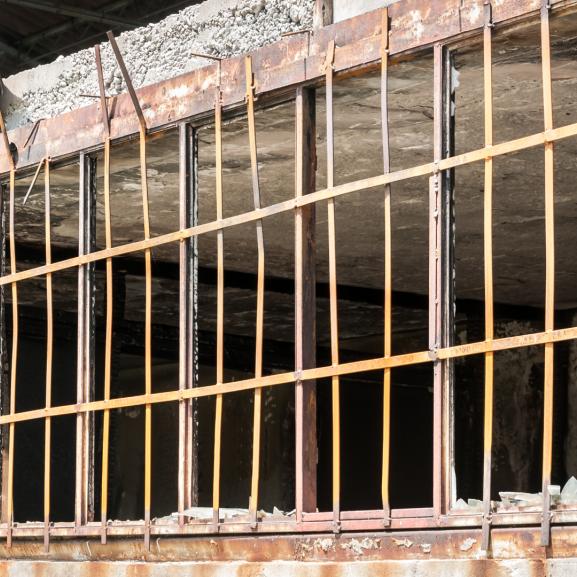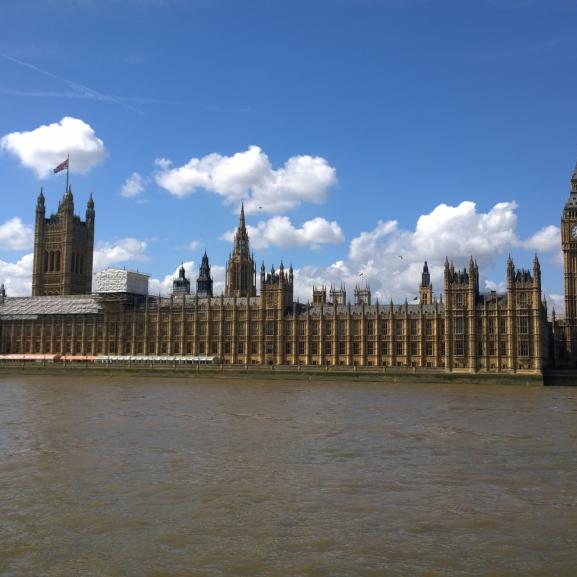Ahead of Foreign Secretary Boris Johnson’s visit to Iran, new evidence reveals ongoing use of torture in Iran and calls for urgent action
A major new report published today by Freedom from Torture contains shocking evidence of torture and poor detention conditions in Iran, and criticises the muted response to these human rights abuses from the UK and other countries.
As Boris Johnson flies into Tehran to discuss increased banking links and the distressing cases of detained British nationals including Nazanin Zaghari-Ratcliffe, Freedom from Torture is urging the UK government to end its silence on the appalling use of torture in Iran.
The detention of British-Iranian nationals highlights the shocking way those who are arrested and detained in Iran can be treated, and the charity is calling for a greater emphasis from the UK government on human rights in all of its dealings with Iran, including trade and business negotiations and discussions on strengthening political relations.
'Turning A Blind Eye: why the international community must no longer ignore torture in Iran' examines forensic evidence of 69 Iranian torture survivors examined by Freedom from Torture since 2015. These reports document alarming levels of torture and abuse perpetrated by the Iranian government between 1985 and 2015.
'Turning A Blind Eye: why the international community must no longer ignore torture in Iran' examines forensic evidence of 69 Iranian torture survivors examined by Freedom from Torture since 2015. These reports document alarming levels of torture and abuse perpetrated by the Iranian government between 1985 and 2015.
The research confirms that the widely-reported crackdown following Iran’s 2009 election was not a one-off, detailing the use of torture both before and afterwards by the police, intelligence and security services. It exposes the horrific abuses that take place inside detention centres across the country. Given that international monitors are routinely denied access to these facilities, the evidence represents a unique and detailed insight into the country’s shocking detention practices.
The evidence demonstrates how torture has been used by the Iranian regime to restrict real and perceived political, religious or minority ethnic activity, including low-level activities such as attending a protest, blogging or drawing graffiti.
Torture methods identified in 'Turning a Blind Eye' include appalling physical abuses, from beatings and stress positions to electric shocks and cutting with knives, as well as high levels of sexual violence perpetrated against men and women, including rape. A distinctive feature of torture in Iran is the sophisticated use of psychological torture, including humiliating treatment, extended use of solitary confinement, and threats or harassment directed at torture survivors and their families. This appears to be an effort to destroy not just individuals but societal structures and trust in order to maintain control.
All this is taking place against a backdrop of promises from Iran’s President Rouhani, including those made during his 2017 election campaign, to deliver political reforms. As part of the report’s recommendations, Freedom from Torture calls on the Iranian government to take steps to investigate allegations of torture in order to demonstrate to its citizens a real commitment to ending these abuses and moving society forward.
Torture methods identified in 'Turning a Blind Eye' include appalling physical abuses, from beatings and stress positions to electric shocks and cutting with knives, as well as high levels of sexual violence perpetrated against men and women, including rape. A distinctive feature of torture in Iran is the sophisticated use of psychological torture, including humiliating treatment, extended use of solitary confinement, and threats or harassment directed at torture survivors and their families.
The report also highlights that torture has slipped down the international community’s agenda in recent years, sending a devastating message to Iranian survivors of torture, including those in exile, and those in Iran living with the daily threat of torture.
Sonya Sceats, Acting Chief Executive of Freedom from Torture, said:
“Torture must be at the top of agenda for the Foreign Secretary’s visit to Iran this weekend. Nazanin Zaghari-Ratcliffe’s case demonstrates the blatant disregard the Iranian government has for legal rights and protections and highlights why the UK government has to demand greater action from the Iranians to end these practices. Our report exposes some of the shocking practices that go on inside detention centres inside Iran, and with a number of British citizens currently detained there we are calling on him to make this an urgent priority.
Our research shows the brutal way in which the Iranian government continues to use torture to control religious, political and minority ethnic activity. The survivors we work with, including those whose medical evidence formed the basis of our research, typically faced years of harassment and abuse before being forced to flee to save their own lives and protect their family members from abuse.
This leaves them terrified of speaking out, even when they have reached the relative safety of the UK. So when the UK government is also silent about the unacceptable use of torture this sends a devastating message that the Iranian government can act with impunity.”
The report is being discussed at a specially-convened meeting of the Parliamentary Human Rights Group on 11 December.
Ann Clwyd MP, Chair of the Parliamentary Human Rights Group said:
“Earlier this year when the All Party Parliamentary Human Rights Group looked at the abuse of minority rights in Iran, a matter also highlighted in this report from Freedom from Torture, the issue of impunity was raised. Torture is another area where impunity for perpetrators has devastating consequences, allowing torturers to go on destroying individuals, their families and their communities.
If the UK Government is to build a meaningful relationship with Iran, it must engage on a range of issues – which means continuing to demand greater commitment from Iran to respect its international human rights obligations, including by preventing torture and prosecuting those alleged to have committed this reprehensible crime.”







